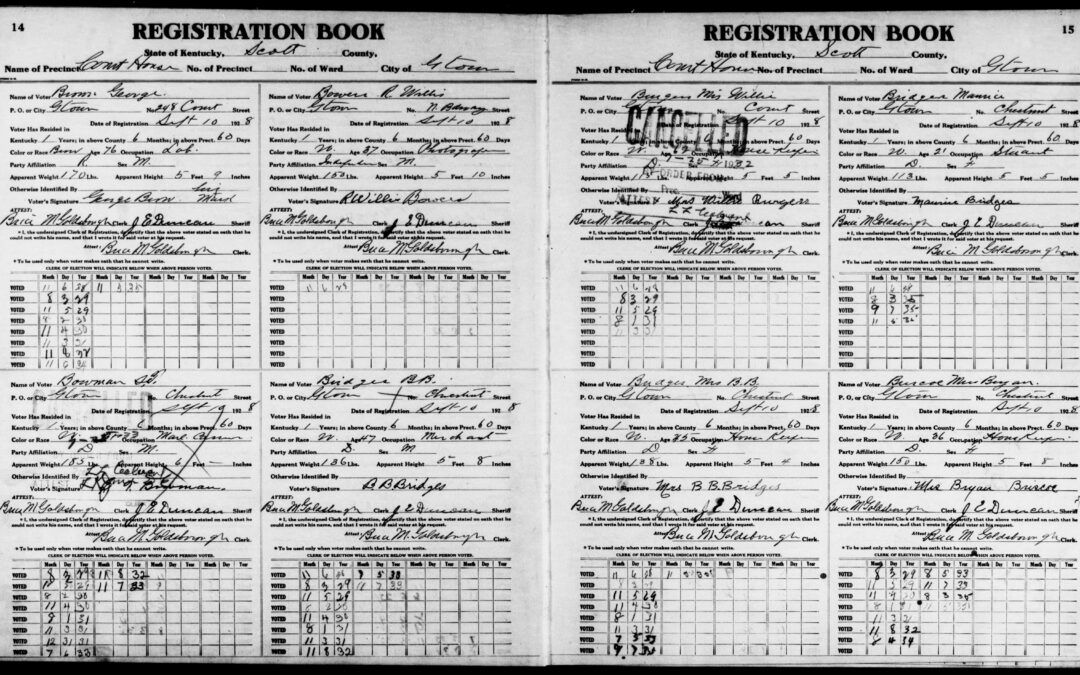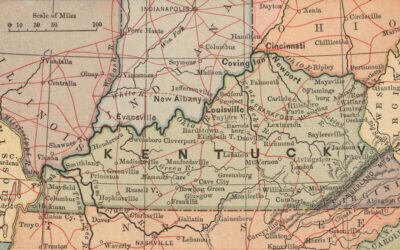The National Archives and Records Administration (NARA) in Washington, DC, represents one of America’s essential resources for genealogy research. NARA certainly ranks with other major cultural institutions devoted to family history, such as the Library of Congress (including their Local History and Genealogy Reading Room in the Jefferson Building); the Family History Library in Salt Lake City, Utah; and the Allen County Public Library in Fort Wayne, Indiana.
In fact, many family historians often view a trip to NARA as the pinnacle of their research experience, the final destination where their family pilgrimage must ultimately lead. Such a weighty reputation can be intimidating for anyone venturing to the National Archives for the first time, but it doesn’t have to be so. By following a few basic guidelines for research at the National Archives, genealogists can start on the right footing before you even step through the front doors.
What is NARA?
The National Archives, of course, is the official repository for the permanently valuable (legal or historical) records of the Federal Government of the United States. The records generally date from the establishment of the Federal Government under the US Constitution in 1789, but also include records of its predecessor bodies, including the First and Second Continental Congresses (1774–1781), the Confederation Congress (1781–1788), and the Constitutional Convention of 1787.
To have genealogical success at the National Archives, therefore, you need to frame your family research within the context, “How did your ancestors interact with the Federal Government during the routine course of their daily lives?”
There can be any number of basic answers to that question, such as being counted in the census every ten years, serving in the military, coming into the country as an immigrant, or applying for US citizenship, to name a few. Once you determine the probable or exact nature of the relationship, you can even discover lesser known records, such as appointment papers and personnel files for individuals who worked as Federal employees.
Understand the NARA Collection
The key is to set specific goals without embracing unrealistic expectations. One of the major misperceptions that researchers often contend with is the notion that NARA holds every record that was ever created relating to American history, and that all of those records still exist after 230+ years. From an archival standpoint, this just isn’t true.
Many records never survived the test of time for a variety of reasons, from natural or manmade disasters, shoddy recordkeeping practices, or simple neglect, to intentional destruction; for 160 years—from 1789, when the Federal Government was established, to 1934, when the National Archives first opened for business—there was no Federal regulation or oversight for the way the national government managed its own records.
Also, many records that genealogists take for granted today as essential sources—such as birth, marriage, death, and divorce records—were never Federal in nature (these are records created by state governments); the National Archives, therefore, does not hold or preserve such material.
NARA Keeps Records of Events not Families
Researchers, finally, need to understand that the National Archives functions as an archival repository, not a genealogical society. This simply means that NARA does not collect files or information about individuals or families, and there is no grand database that can identify and retrieve every record in our holdings that relates to a specific individual.
With over nine billion pages of records at NARA, such an index would be physically impossible to compile in anyone’s current lifetime! Family research at the National Archives requires good old fashioned detective work, sifting through indexes to individual series of records, or sometimes paging through boxes of case files to find relevant information.
NARA Can Assist Your Search
To recap: keep it simple; keep it focused; and keep it relevant to the actual records that NARA holds. If you follow these basic concepts you will stand a much better chance of finding something of value at the National Archives that you might not be able to locate anywhere else.
References
Refer to the National Archives website for more information about their collections and online searchable database.





